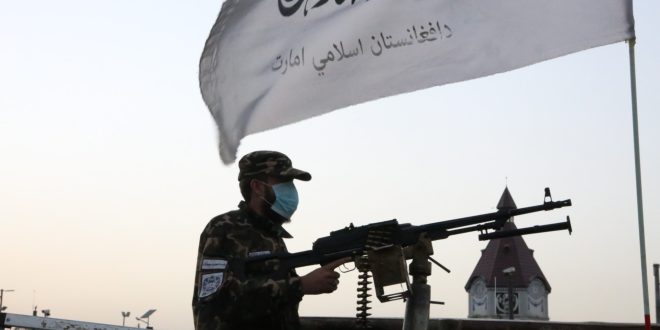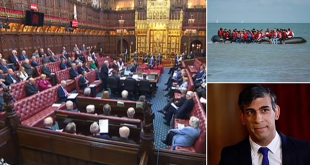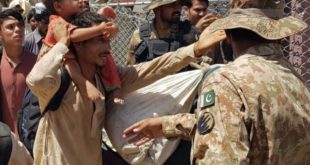Anand K Sahay
AT
Kabul: The recent killing of Al-Qaeda chief Ayman al-Zawhiri in a CIA drone strike in Kabul, at an address evidently linked to Taliban interior minister Sirajuddin Haqqani, is very bad optics for the regime. It raises complex questions about the Taliban, and requires us to ponder how India should proceed in Afghanistan.
Anand Sahay is a senior journalist based in Delhi wrote in his article published in an Indian media that, New Delhi may have to cautiously re-visit its modulated approach to the Taliban to check for roadworthiness. In a low-key operation in June, it reopened its mission in Kabul which had been closed after the Taliban takeover, underlining India’s Taliban-wariness over its past terrorist acts against Indian interests.
The declared purpose of restoring representation is to coordinate the substantial Indian food and medical relief — to ensure it reaches needy Afghan people now in a near-famine situation. India’s overture, besides emphasising our deep friendship with the Afghan people, may be seen as cautious pre-positioning for the day the US and others eventually settle down to confer legitimacy on Taliban rule.
Crucially, this depends on the Taliban cutting all terror links, especially groups with an international jihadist outlook like Al-Qaeda, and upon the insurgents paving the way for a government that accommodates all political interests in Afghanistan, besides treating women on an equal footing with men. The Zawahiri killing is a decided setback. It recalls Pakistan’s double-dealing being exposed when Osama bin Laden, whom Zawahiri succeeded as Al-Qaeda chief, was killed by US special forces in Pakistan.
After the Zawahiri assassination, US secretary of state Antony Blinken has justly accused the Taliban of “grossly violating” the Doha peace accord, under which the Taliban pledged not to harbour terrorists or allow terrorist attacks to be launched against other countries from Afghan soil. For the US, revenge for the 9/11 attacks is now complete as Zawahiri was the brains behind that tragic event. But this is strictly for US domestic politics.
For the rest of the world, once the US brought the Taliban back from the cold after battling it militarily for two decades, and then signed a peace agreement with it, bypassing the then Afghan government, it seems inconceivable that Washington would once again seek to freeze the group out. Doing so may mean that the countries with real influence and leverage with the Taliban are China and Pakistan.
Afghanistan may then lapse into a state like that existed before the US invasion in 2001, which led to the Taliban’s ouster. The Haqqani faction — given its proximity to Pakistan — may then become the most powerful politico-military entity.
With the Mullah Omar era ending after the Taliban founder’s death, by natural causes or engineered by the Taliban’s Pakistan controllers, the Haqqanis have pulled the most weight in the group, being the closest to Islamabad. The Kandhar and Doha groups have had to kowtow.
Geography has much to do with the Haqqani power base, making it the most influential Taliban faction — a factor that has received inadequate attention in understanding intra-Taliban power dynamics. The clan is from the virtually ungoverned, rugged, tribal region that falls between Pakistan and eastern Afghanistan which has attracted and sheltered jihadist fighters from far afield, including Arabs, Uighurs, Uzbeks, Tajiks and Pakistanis. It has strong social and matrimonial ties with foreign groups and fighters since the days of the anti-Soviet jihad, which was overseen by Pakistan. Pakistan is their overall “warlord” in that sense.
Now that the Taliban are back in the saddle in Kabul, and the country is in dire straits, it faces a dilemma. It is desperate to gain international recognition in order to attract foreign assistance in every conceivable field to avoid economic and political instability, else it could meet with serious internal challenges, including from Taliban factions. But in order to be a normal country, it must cut off links with terror groups, many of whom may now be family or close associates, regardless of nationality.
This is a possible explanation why Zawahiri came to be sheltered by the Haqqani outfit. After Bin Laden’s death, Al-Qaeda was rendered a spent force except in parts of West Asia and the Sahel in Africa. Zawahiri was without charisma. He had no followers. He was living out his last days as a retired terrorist and was shorn of value, living practically on charity. Vanda Fellab-Brown, in a recent well-argued Brookings paper, sheds light on many aspects of the Taliban relationship — especially that of the Haqqanis — with foreign fighters and groups. She asks some questions: Would Zawahiri be able to do anything without the Haqqanis finding out; and whether Zawahiri, finding harbour with the Taliban, would do anything (like engineering a terrorist strike) that would jeopardise his hosts?
So, who was in a position to betray Zawahiri? Two sets of people, really. The first are those seeking to curry favour with the Americans — such as Pakistan, which is in a poor way and can do with all-round US help in getting financial aid and escaping the FATF (UN’s terrorism roster); and of course the Haqqanis themselves, partly to cement their own position within Afghanistan and possibly to get rid of the Al-Qaeda connection in a clever, secret manoeuvre. The other set are those who calculate they might benefit if the Haqqanis are exposed as helping Al-Qaeda. In this group can be other Taliban factions or even non-Taliban Afghans.
While castigating the Haqqanis for the Al-Qaeda link, we should bear in mind that the Islamic State of Khorasan (ISIS-K) has gained in Afghanistan and is challenging the Taliban, mounting terrorist attacks across the country. They are not a Taliban creation. Conjecture places their provenance with Pakistan’s secret agencies and sometimes even with the dark side of American operations.
Compared to ISIS-K, Al-Qaeda in Afghanistan is small beer.
The question is why should any of this worry us. The answer isn’t complex. If Taliban returns to being its pre-2001 self with withdrawal of Western — and Indian — help, India can be seriously impacted on terrorism. Two, Afghanistan — along with Iran — plays an important part in delineating our strategic interests in Central Asia. If we walk away now, we would have ceded all leverage to China and Pakistan in Afghanistan. That would help complete India’s encirclement to the north and the west.
Afghanistan is a society and polity in transition. The Hamid Karzai years, for all their negatives, did produce the outlines of a new Afghanistan. The system in power today is undergoing a churn. The Zawahiri incident could well trigger certain unexpected happenings. We need to stand by the Afghan people in this extraordinary moment.
 Afghanistan Times
Afghanistan Times




